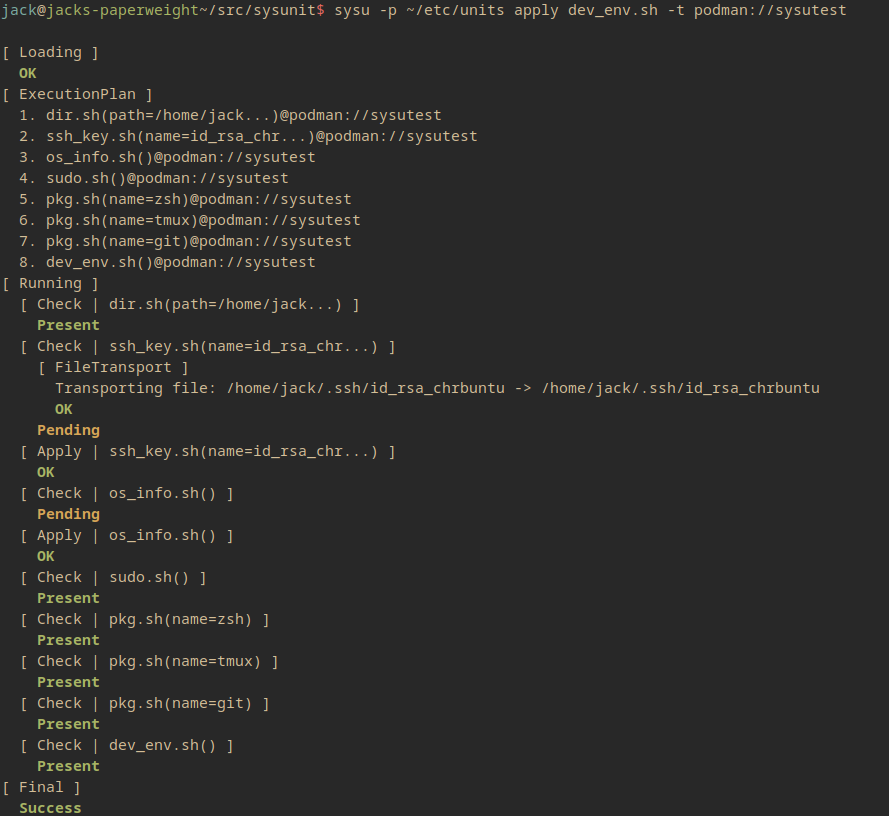Sysunit
Sysunit is a minimal state management tool for POSIX systems. It's useful for things like wrangling your development environment, configuring servers, building code, provisioning containers and IoT devices, and automating deployments.
Instead of introducing a new language or requiring complex templating logic in configuration files to define desired state, Sysunit uses composable shell scripts to define units of change. This makes it easy for anyone familiar with basic shell programming to pick up (this includes LLMs!) and units can be run against spartan systems such as devices running busybox or alpine containers.
Qualities
- Minimal: Sysunit is a single binary with no dependencies.
- Agentless: Commands are streamed to target systems over anything that can intepret shell. This includes SSH, Docker, Podman, and even serial connections.
- Aproachable: There's only a couple concepts on top of basic shell scripting to learn here.
- Fast: Sysunit is written in Rust, and runs only one process per target system.
- Idempotent: Units are idempotent, so they can be run multiple times without changing the system state.
- Composable: Units can accept parameters, depend on other units, and emit values to their dependees, making this tool suitable for fairly complex workflows.
Limitations
- Sequential: Sysunit currently only runs one unit at a time. This is a only a limitation of the CLI, and the architecture will allow for parallelization with alternative interfaces.
- Stateful: This isn't Nix, and only provides idempotency checks as a way of avoiding the pitfalls of stateful configuration management.
- Small-scale: This tool is not intended for managing very large fleets of systems. The CLI will become hard to understand with more than a few dozen, and the process-per-target model will fall over at some point beyond that.
- Batteries Not Included: Sysunit is oriented at folks comfortable with POSIX systems currently, so it doesn't have any built-in units. A contrib repo of oft-repeated units is likely to emerge with traction.
Installation
Sysunit is oriented towards the Rust community until it reaches version 1.0, so it is only available via Cargo for now:
cargo install sysunit
Basic Operation
Given this basic unit:
# foo_file.sh
check() {
if [ -f /tmp/foo ]; then
present
fi
}
apply() touch /tmp/foo;
remove() rm /tmp/foo;
sysunit apply foo_file.sh will ensure that /tmp/foo exists on the local system,
and sysunit remove foo_file.sh will remove it.
Read the guide for approachable information on how to write and compose units, or the cookbook for a look at more sophisticated usage.
